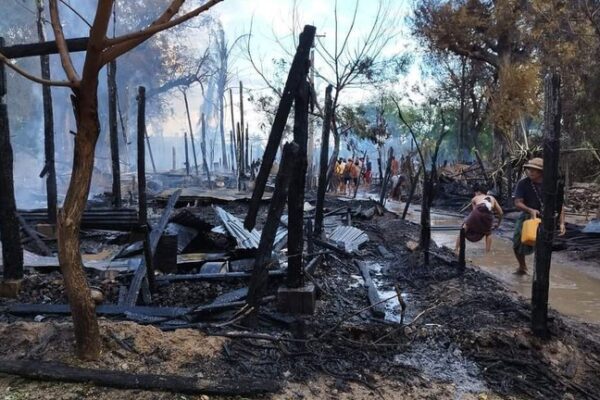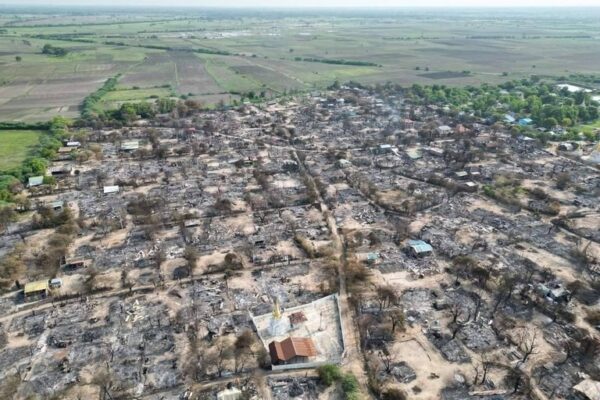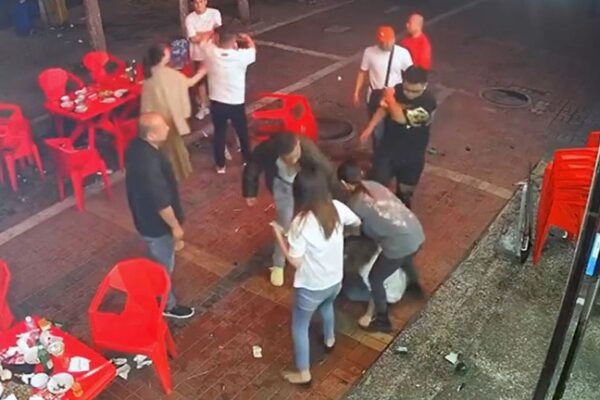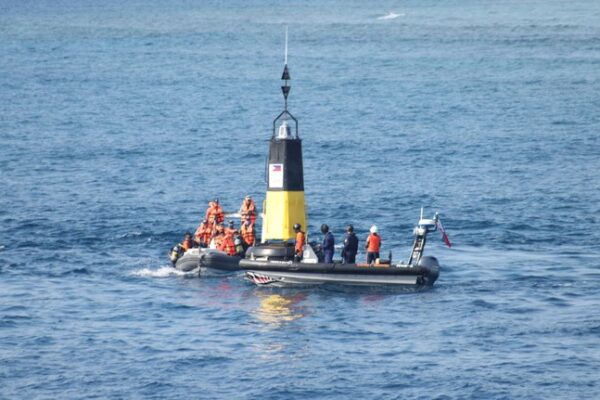A song by veteran Chinese folk-rock act Slap referring to numerous darker news events has disappeared from Chinese social media amid an ongoing crackdown on public performances and growing controls on cultural content. Slap, a prominent part of the festival circuit in recent year, released “Red Boy’s 18 Wins” in January 2023, with lyrics detailing the exploits of a fictitious hero – Red Boy – and a series of challenges he encounters. It refers to a woman found chained by the neck, the breakout by employees at Foxconn’s Zhengzhou factory during the COVID-19 restrictions, the death of high-schooler Hu Xinyu and attacks on women eating at a restaurant in the northern city of Tangshan. “A mother of eight children with a chain around her neck,” the lyrics read. “Vicious scum who burned his wife is sentenced to death.” “Don’t tell me Tangshan is just like Gotham City, which at least had Batman,” the song says, picking up on several scandals of the three-year “zero-COVID” policy, where “everyone is obsessed with negative and positive [tests].” Huge following among youth The band has generally operated on the fringes of mainstream culture in mainland China, and has a huge following among young people today due to their songs’ criticism of the political system, and of society as a whole. Delivered in the style of a Chinese folk opera ballad, the 14-minute banned song has a laid-back accompaniment from a regular rock band, with Red Boy generally understood to represent the Chinese Communist Party. The lyrics and saga-like quality of the track, which is still available on YouTube, recall a classic of Chinese literature as Red Boy goes to war against Sun Wukong the Monkey King from “Journey to the West,” yet their gritty and often horrific content is drawn straight from recent headlines. A screenshot from surveillance video shows four women being attacked by a group of men at a late-night barbecue restaurant in Tangshan, China, in the early hours of June 10, 2022. Credit: RFA “We’re lucky to be born in the New Era,” it concludes in a reference to the political ideology of President Xi Jinping, after commenting that “everyone’s got Stockholm Syndrome.” “Hard work will win out in the end,” says the last line, referencing a 1980s TV theme tune from the now-democratic island of Taiwan, which was under the authoritarian rule of the Kuomintang and its hereditary leader Chiang Ching-kuo at the time the song was released. It was unclear whether the band has been caught up in a recent clampdown on public performances by government officials across China. A May 26 Weibo post from the band listed several June gigs in different cities, with the comment: “Let’s wait and see.” ‘Boldy crossed’ lines Akio Yaita, Taipei bureau chief for Japan’s Sankei Shimbun and an expert on China, paid tribute to the band in a recent Facebook post, saying it had “boldly crossed into restricted areas,” and became hugely popular online as a result. “A lot of people online commented that they feared for the safety of the band,” he wrote. “This is the first time I heard of them … Founded in Baoding, Hebei in 1998, they have five members and … use very down-to-earth language to comment on the topics of the day.” While the band may have flown under the radar until now, “Red Boys 18 Wins” had overstepped a red line, he said. “I think there will be a ban on performances coming soon, and maybe someone will go to jail,” Yaita wrote. People with suitcases and bags leave a Foxconn compound in Zhengzhou in central China’s Henan province on Oct. 29, 2022, in this photo taken from video footage and released by Hangpai Xingyang. Credit: Hangpai Xingyang via AP Taiwan-based Chinese feminist author Shangguan Luan told Radio Free Asia, who has seen the band perform live in the southwestern city of Chengdu, said they are well-known for their stinging social criticism. “They have been doing songs with the same kind of social criticism in them for years,” she said. “Every time they do a gig, they’ll have a song summarizing recent events, based on a familiar tune.” “They go for the hot topics – it’s kind of a tradition for them – integrating all of the news from the past few months or the past year,” she said. “Bands in China have always been somewhat underground, and many have been banned over the years,” Shangguan Luan said. “Basically, all the bands I like have been banned, so they can’t perform in mainstream venues.” One of few channels Ren Ruiting, who fled to the United States with her family following the banning of the Early Rain Covenant Church in Chengdu, said Slap’s songs could actually be the first place that many young Chinese people encounter such biting commentary on current events. “They’re very critical and very gutsy,” Ren said. “There aren’t that many channels through which the younger generation can learn the truth, because they don’t read books any more.” “But they love music and talk shows, so it’s a good way to get them to think [differently],” she said. Blogger YYQ described the band’s lead singer Zhao Yuepeng, who pens the songs, as “an observer who uses postmodernism to deconstruct reality.” “Rock music that isn’t critical is itself in need of criticism,” the blogger wrote in a recent post on the band. “Borrowing the narrative structure of traditional folk … it offers open-minded and insolent accusations and humble words, without shame,” the post said. “The deliberate structures and rhythms enhance the weight of what is being said, but also give a sense of absurdity.” Translated by Luisetta Mudie. Edited by Malcolm Foster.







